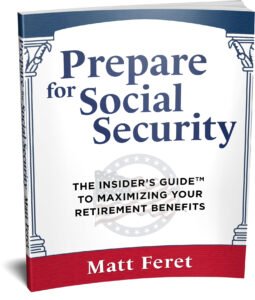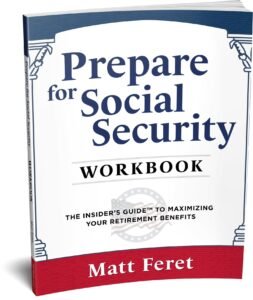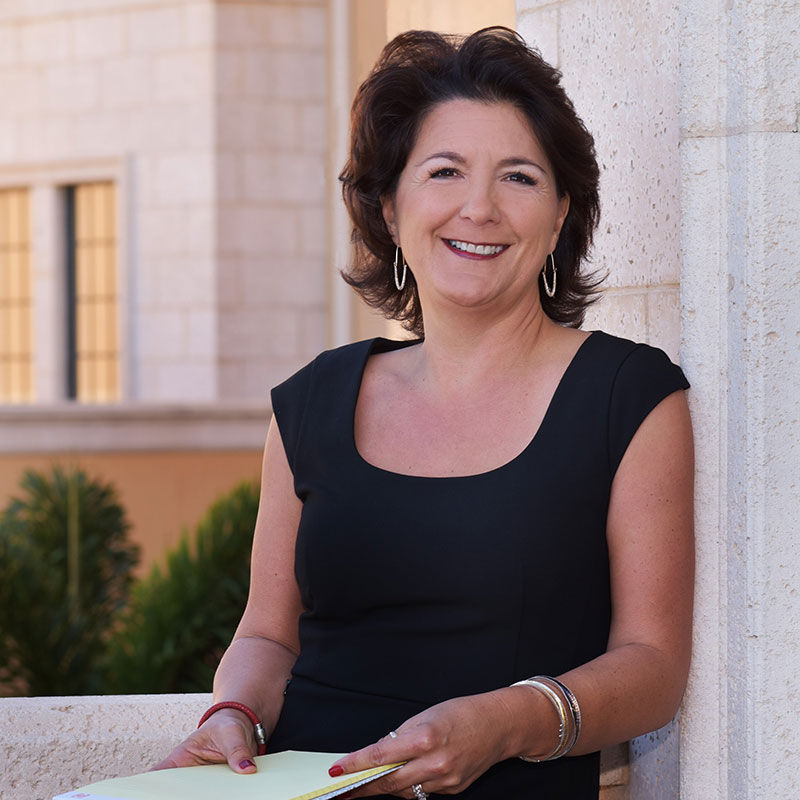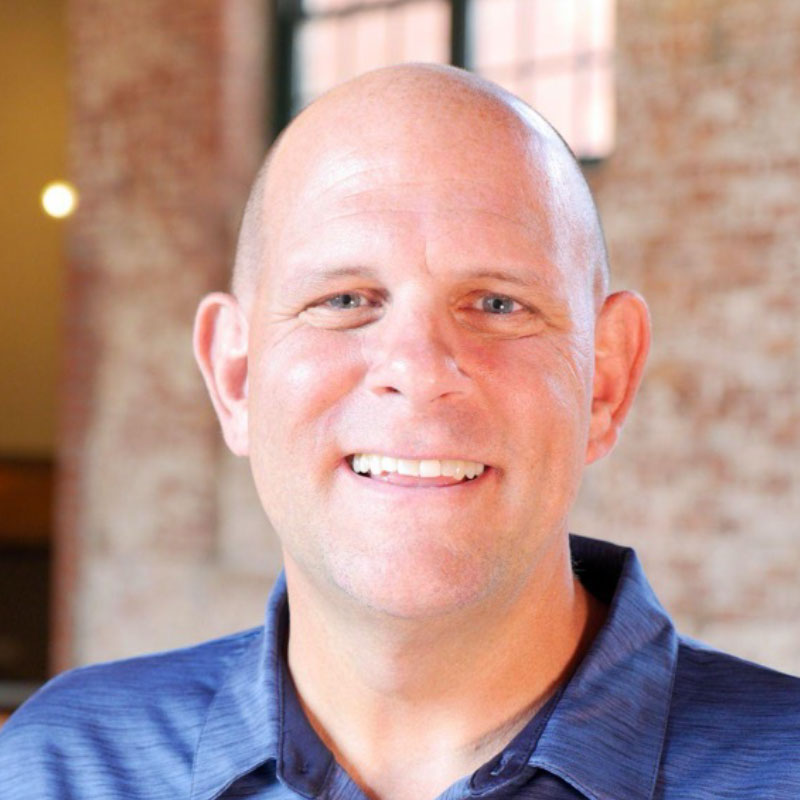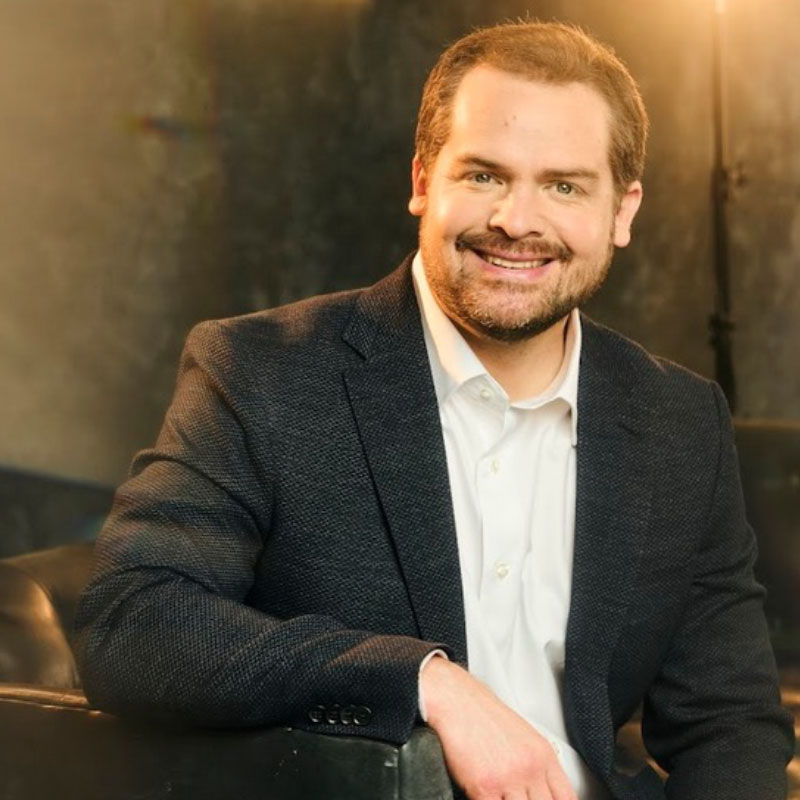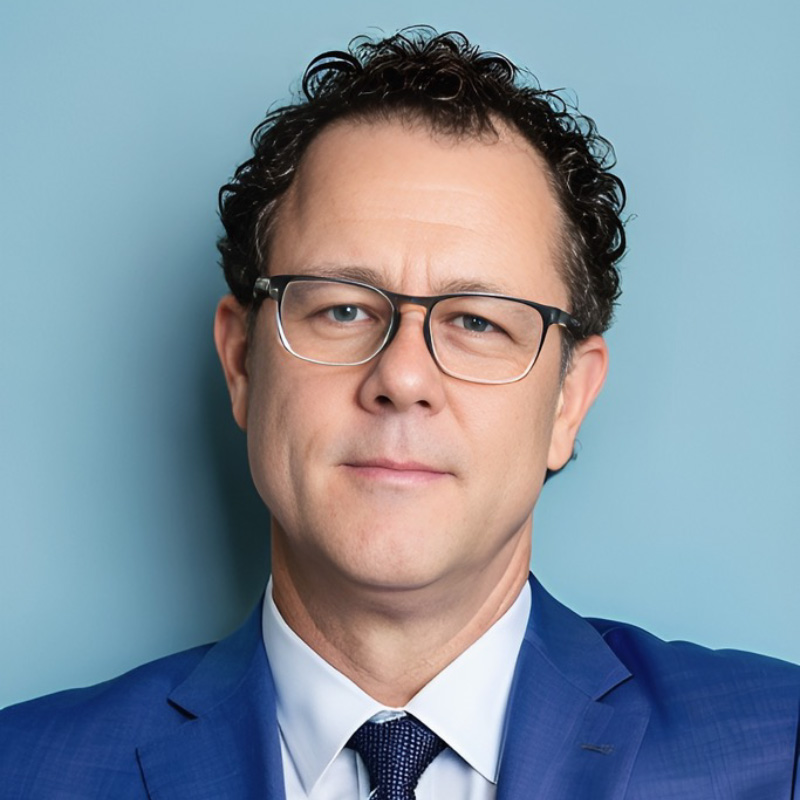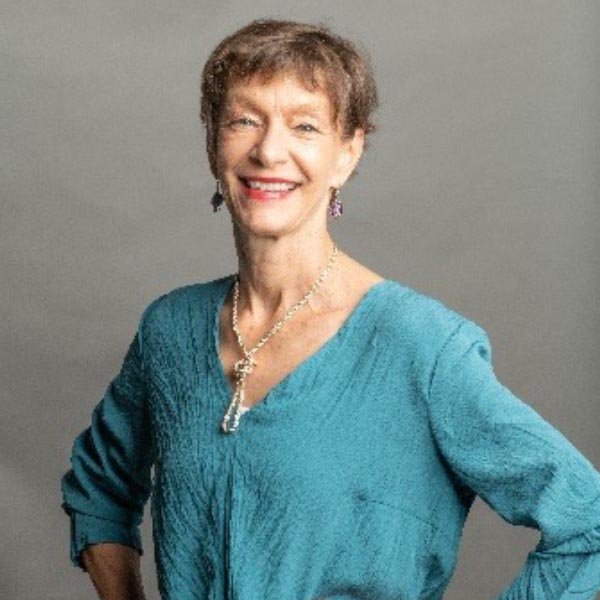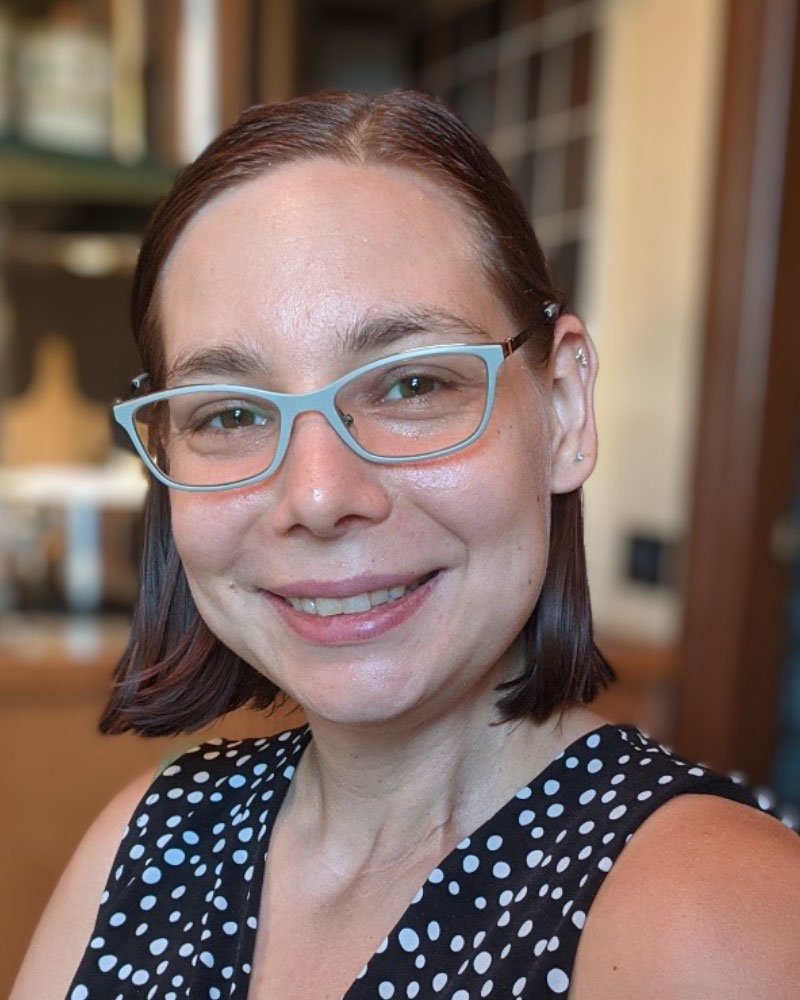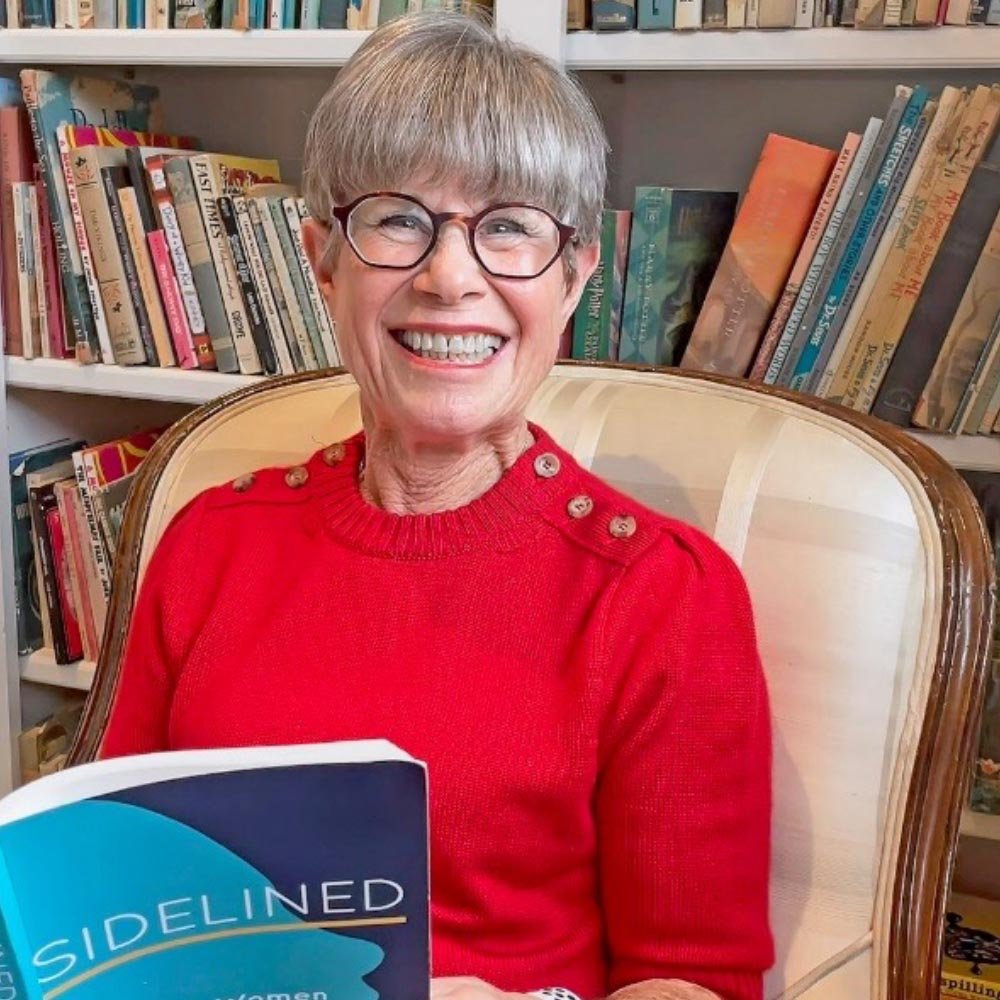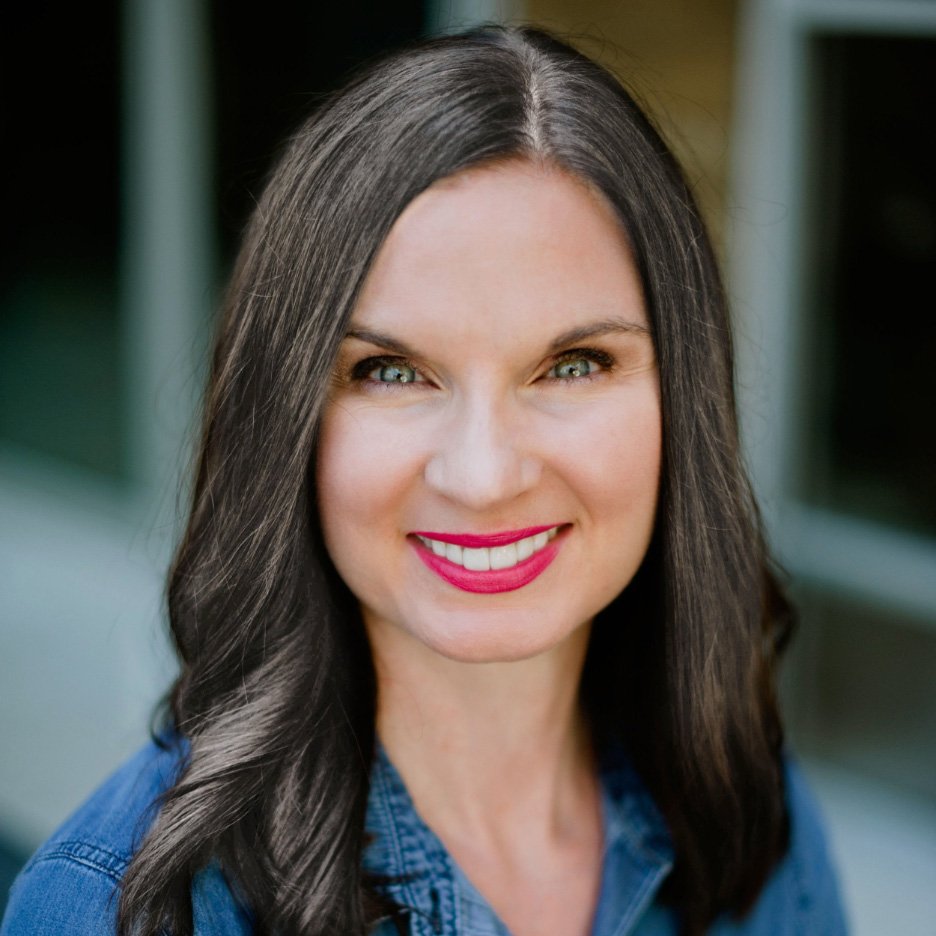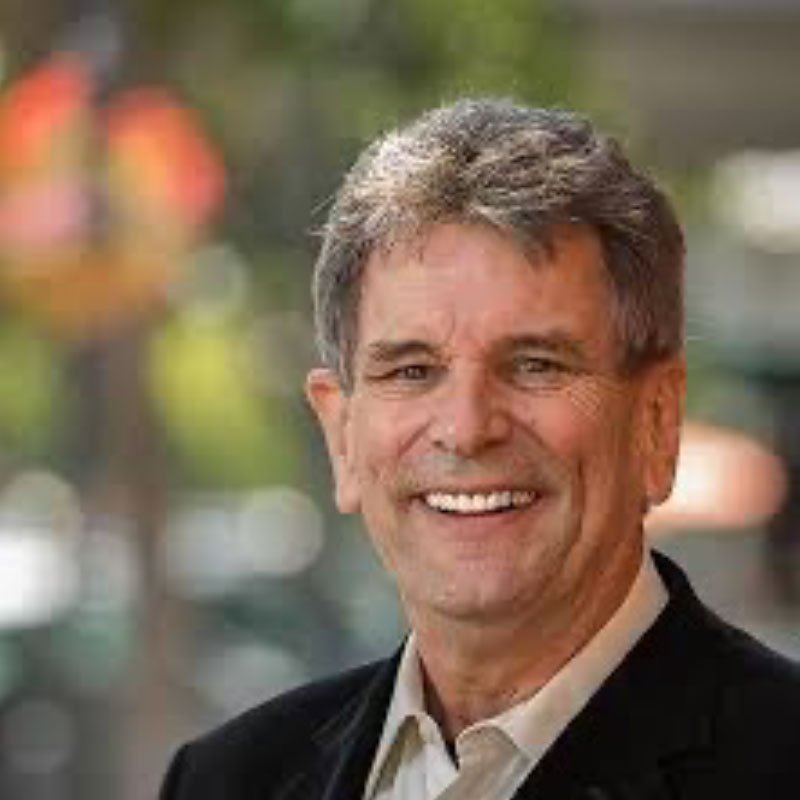#044
Share This:
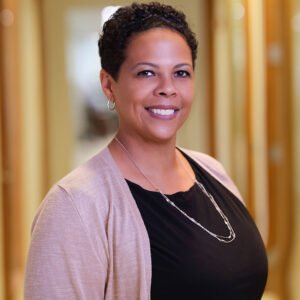
How can individuals and familiеs еffеctivеly plan for sеnior housing, hеalthcarе, and financial stability as thеy agе?
Join me on a deep dive into the complexities of planning for senior living with expert Arvette Reid.
In this episode, we go beyond the numbers, exploring crucial aspects of lifestyle, healthcare needs, and the unique challenges faced by solo agers.
Whether you're looking ahead for yourself or assisting a loved one, our conversation offers invaluable guidance on creating a well-rounded strategy for senior living.
Tune in to discover how to navigate these waters with confidence and foresight.
#1 Comprеhеnsivе Planning Bеyond Financеs
Aging planning is a multifacеtеd еndеavor that transcеnds financial considеrations. Arvеttе Rеid advocatеs for comprеhеnsivе planning, еmphasizing thе importancе of dеlving into prеfеrеncеs, lifеstylе choicеs, and potеntial hеalth scеnarios. To crеatе a holistic plan for aging, individuals and familiеs nееd to еngagе in opеn communication, fostеring dialoguе that еncompassеs thе multidimеnsional naturе of sеnior housing planning. This goеs bеyond monеtary aspеcts, addrеssing lifеstylе prеfеrеncеs and potеntial hеalth challеngеs, еnsuring that thе aging procеss is approachеd with an informеd and proactivе mindsеt.
#2 Solo Agеrs Proactivity
Thе discussion pivots to thе uniquе nееds of solo agеrs, individuals navigating aging without thе immеdiatе support of a partnеr or closе family. Arvеttе undеrscorеs thе nеcеssity for solo agеrs to bе proactivе plannеrs. This involvеs addrеssing statе documеnts, such as wills and advancеd carе dirеctivеs, and еxploring various housing options suitеd to thеir prеfеrеncеs and nееds.
Thе kеy takеaway is thе importancе of solo agеrs taking chargе of thеir planning, making dеcisions that align with thеir vision for aging, and еnsuring a supportivе еnvironmеnt as thеy navigatе thе complеxitiеs of growing oldеr alonе.
#3 Financial Implications
Unvеiling thе financial aspеcts of aging, Arvеttе dеlvеs into thе substantial costs associatеd with 24-hour carе at homе, еmphasizing thе nеcеssity of comprеhеnsivе planning. Bеyond thе common misconcеption that moving to rеtirеmеnt communitiеs might bе a financial burdеn, Arvеttе highlights thе potеntial bеnеfits, including built-in support systеms and hеalthcarе rеsourcеs. This takеaway еncouragеs individuals to considеr various scеnarios, еvaluating thе financial implications of staying at homе vеrsus moving to sеnior communitiеs. By undеrstanding thе nuancеd financial landscapе of aging, individuals can makе informеd dеcisions alignеd with thеir prеfеrеncеs, ultimatеly еnsuring a sеcurе and wеll-supportеd futurе.
Listen to the episode on Apple Podcasts, Spotify, Deezer, Podcast Addict, Stitcher, Google Podcasts, Amazon Music, Alexa Flash Briefing, iHeart, Acast or on your favorite podcast platform. You can watch the interview on YouTube here.
Brought to you by Prepare for Medicare – The Insider’s Guide book series. Sign up for the Prepare for Medicare Newsletter, an exclusive subscription-only newsletter that delivers the inside scoop to help you stay up-to-date with your Medicare insurance coverage, highlight Medicare news you can use, and reminders for important dates throughout the year. When you sign up, you’ll immediately gain access to seven FREE Medicare checklists.
Quotes:
"Thе most important thing is to surround yoursеlf with diffеrеnt spеcialists and diffеrеnt functions so that you can build thе big picturе."
"You can't just go to your financial advisor. You can't just go to an attornеy. You can't just go hеrе. You havе to connеct, havе еvеrybody connеctеd so you can build a big picturе."
"Thе morе support you havе, thе bеttеr thе outcomе for thе family as a wholе, and that's what's most important."
#044
Selected Link from the Episode:
Website: https://lifecareaffordability.com/
Social:
https://www.linkedin.com/in/arvette-morgan-reid/
https://www.linkedin.com/company/lifecareaffordabilityplan/about/
https://www.facebook.com/lifecareaffordabilityplan/
You can also find the host Matt Feret on Amazon, LinkedIn and Instagram.
Full Show Transcript:
Matt Feret: [00:00:00] Hello, everyone. This is Matt Feret, author of Prepare for Medicare and Prepare for Social Security Insiders Guidebooks and Online Course Training Series. Welcome to another episode of the Matt Feret Show, where I interview insiders and experts to help light a path to successful living in midlife, retirement, and beyond.
Matt Feret: Arvette,
Arvette Reid: welcome to the show. Hi, Matt. Thank you. I really appreciate the opportunity.
Matt Feret: Glad you're here. So tell everybody what you do, how long you've been doing it, and how you help people. Yeah, I
Arvette Reid: love the fact that your website talks about health, wealth and wellness, because that's like my lane. So, I currently work for SEIA, which is a large RIA based out of California, but my background is a little different.
Arvette Reid: So, I actually spent 15 years in the Senior Housing and Healthcare Network, working directly with families who were making decisions about care needs and housing needs. And then after that, I joined SEIA after Tom West, one of the partners who I [00:01:00] knew is kind of the finance guy that got it, convinced me to come join the practice so we could figure out how to help people and what we call the post retirement space when all the healthcare stuff happens, right?
Arvette Reid: So 15 years in senior housing and healthcare, now six years in finance, and I'm actually licensed. And so my space is helping people take health and wealth and mesh it together and figure out how to better come out with better outcomes and scenarios to figure out what to do. Right. But I also like to add on that.
Arvette Reid: Not only am I healthcare experience, finance experience. But most importantly, I'm an adult daughter who had to navigate this connection of health and wealth, not only for my parents, but also for my father in law. So whenever I'm having conversations with people or doing podcasts, I'm looking at things through three lenses to try to help bring the picture together.
Arvette Reid: Okay.
Matt Feret: There's a ton to unpack here and I have so many questions. Let me, let me start with the first one. So you specialize in areas of senior [00:02:00] housing, kind of post healthcare event, or tell me where kind of Medicare and insurance drop off. I mean, we all, maybe we don't all know, but a lot of us know that Medicare doesn't, cover long term care, true long term care as in assisted living.
Matt Feret: You know, you're in there, you can't be at home anymore or you need in home help 24 seven. So is that where you pick up? Um, or do you actually kind of come back into retirement before any of that stuff happens and start planning that out?
Arvette Reid: That is a great way to start because when people think healthcare, they go right into Medicare and what does Medicare cover and doesn't.
Arvette Reid: But what's more important is we take a step back, right? So if you think about your traditional financial planning timeline, Most people start about what are your pre retirement goals? What are your retirement goals as far as what's your budget going to be and what's your legacy? But we all know, people who work in the senior housing and healthcare industry especially, know that after retirement you have all these plans, like we're going to buy a beach house, we're going to travel the world, we're going to visit the grandkids five, you know, times a [00:03:00] year.
Arvette Reid: And then something happens. And everything gets like turned upside down. So sometimes that's exactly the point that we're intersected where something's changed, like a new diagnosis, like, Oh my God, my husband was just diagnosed with Alzheimer's and I have no idea what we're going to do and how we're going to do it.
Arvette Reid: Sometimes it's people who have just decided, like, we're getting older and I just don't want to live in this big house anymore. It's too much work, too much maintenance, too much upkeep. And so they're looking at possibly proactively moving to one of those larger retirement communities, right? The aging in place communities, which typically have, you know, all levels of care.
Arvette Reid: And then sometimes it's just the, oh my God, mom had a stroke and a hospitalization and we didn't plan for any of this, like, holy crap, what do we do now? Right? So I work with clients in all of those spaces. And what's most important is because of my health care background, I can talk intelligently about what is covered where depending on the level of care, independent living [00:04:00] being, hey, I'm ready to leave my house.
Arvette Reid: And I think I want to move to one of these big communities. What does that look like? What's this entrance fee thing? Or boom, I think mom needs assisted living right now. What's covered? What's not? Or boom, mom's leaving the hospital after stroke and we're going to nursing. What's covered? What's not? So I can talk all of those levels.
Arvette Reid: So I actually worked independent living, assisted living, memory care, nursing care, and hospice during my 15 tenure. So directly with families,
Matt Feret: that's almost overwhelming. I mean, it's overwhelming to me because there are so many options from, you know, light amounts of care to memory units, which is a whole other ball of wax, right?
Matt Feret: Which is, uh, it serves obviously a very acute need and purpose, but is also just. I have to imagine very expensive. So tell me if you can, uh, and there's no typical situation, but maybe start with a typical situation where someone has parents or someone themselves have have done all the right [00:05:00] things. They contributed their 401k.
Matt Feret: They've got some IRAs in there. Maybe they have an old old school pension churning out money. You know, they've They made a good decision around social security. Everything's going great. They've got good Medicare insurance. What can happen? I mean, you've done all the quote unquote right things. We know these are these uncovered, weird, could be expensive, could drain your finances, things out there.
Matt Feret: What, what do you see if there's a typical story that you, that you can share that could kind of, I don't know, throw a twist into that.
Arvette Reid: The first thing I would say that is common among everybody is that everyone gets paralyzed. It doesn't matter if you have 500, 000 or 5 million. Everybody is afraid of running out of money.
Arvette Reid: And even the people that have a lot of money, maybe they're not as afraid of running out of money, but they're afraid that their wealth is just going to drastically like plunge, right? So, the first thing is to have a reality check of what is your current circumstance, right? And surround yourself with professionals that can help you figure out [00:06:00] what that is.
Arvette Reid: It's really about cash flow need for the care that you need or the plans that you have. Right. So one of the things I like to say from the beginning, when people are looking at the cost of health care, a lot of times when they're talking to health care professionals, nobody in health care talks money, they don't have fiduciaries in health care, they're talking about everything else.
Arvette Reid: They're talking about the things that you can't do anymore, or the things that you have to do. So the whole conversation becomes very scary, let alone, Oh, my gosh, how am I going to pay for it? And nobody's really helping families connect the dots. So the first thing I like to do is okay. What are you most hopeful for?
Arvette Reid: That is the first question that any advisor should be asking their clients. What are you most hopeful for given your current circumstance? So everything we planned for before, that was great. You did all the right things, but here we are now. What do you want? And let your clients start talking about what they're hopeful for.
Arvette Reid: Because before that, everybody's telling [00:07:00] them what they can't do, or they have to do. The healthcare professionals, their adult children. Mommy, gotta get out of the house. Dad, you can't do this anymore. Whatever. So try to like, take a step back and listen to see what they, what they say. Which can be very difficult for some, because a little warm and fuzzy.
Arvette Reid: That's step number one is you have to understand that your client is now feeling very vulnerable. And so you have to be willing to meet them where they are. That's number one is to figure out what they want and not look, go straight to the investment strategy. You need to back up and say, okay, this is, you don't have a mortgage.
Arvette Reid: So the idea that someone's coming to you and saying, it's going to cost you 11, 000 a month for memory care is shocking. So you go from no mortgage to 11, 000 a month just for one person. Oh, my gosh, what am I gonna do? So back it on up and really talk about cash flow, build up what the cash flow is, and then determine what the cost is, and then figure out the plan for the gap.
Arvette Reid: So many advisors are so comfortable [00:08:00] with the portfolio that they go straight to the portfolio and go, Okay, well, how much money do you need? The client has no idea because nobody's actually built up that cash flow and identified that gap. So that is the space. That for the past six years, our team has been focused on how do we communicate that?
Arvette Reid: How do we help people understand that so that people can make better outcomes and better decisions about care that they need based on health care needs, not what's in the portfolio. Okay,
Matt Feret: so do you work with individuals directly that come to you and that find you and it sounds like you also work with other financial advisors as well who have clients that are going through that.
Matt Feret: True? True.
Arvette Reid: Very true. So we are an IRA and we custody money with Schwab and Fidelity. So sometimes I will get Schwab and Fidelity FCs call me and say, Hey, I have a client that's here. And I'll help them talk it through or they'll pull us in and we'll work with the client. And then we have our own clients as well.
Arvette Reid: And then I also do a lot [00:09:00] of speaking engagements. So I do podcasts, I speak to groups, both professional and consumers, just to help educate in this space, right? Because there's so many moving pieces. So I'm very comfortable talking to either audience, either one on one or larger, and kind of educate the best way I can.
Matt Feret: So is there a, a fee, uh, associated with it or is it something that you get?
Arvette Reid: How does that work? Right, so SEIA, we're our traditional wealth management firm, so we charge a percentage of assets under management, and that's how we get our clients. And so there are people, and, and this is how I like to explain it.
Arvette Reid: As you age, think about your parents, Matt, as they aged. They always had their primary care and then they might've had a cardiologist and then they might've had an orthopedic surgeon, or then they might've had, you know, another specialist, an oncologist. So all these specialists come in their life from a physician perspective.
Arvette Reid: And as you age, what you realize is you love your primary care and you might've been there with them for 25 years, but they're not necessarily educated [00:10:00] in what you need in the later stages of life. It's the same thing with your financial professional. Some financial professionals are really good with the highlight.
Arvette Reid: Pre retirement retirement legacy, but that specialty milk right there, a lot of them just aren't comfortable. You know why? Because you didn't get the training. Those questions are not on the CPA exam or the CFP exam and the only things you really know about are long term care insurance and annuity.
Arvette Reid: Which really are just one or two of a list of cashflow that really doesn't solve the gap problem, right? So it's okay. We get a lot of clients who are later in life or their children have heard about us and said, Hey, we're at a point in time where my dad might not be able to manage this portfolio on his own anymore.
Arvette Reid: Right. And we might need some help because now my mom has Alzheimer's. They're getting older. They're talking about moving and. What we say is the job of the money has changed at that point. You have done everything you can [00:11:00] to save, you created a budget, but when healthcare stuff happens, the job of the portfolio most likely needs to change, and that's where we focus right then and there.
Matt Feret: What about the, the selection process of you've got, if you said earlier, you've got. You may have some assets, you have some income, and then all of a sudden something happens and you said memory care, 11, 000 bucks a month, maybe, maybe more. And you mentioned product, right? People talk about long term care insurance.
Matt Feret: I've had long term care insurance on this podcast. I mean, brilliant guy with the insurance piece. And of course, we know annuities as well. They spin off cash, a lot of issues around those as well, positive and negative, just like anything. And that's, you're right, that's where most people stop. In terms of spinning, things that spin off cash or things that protect you from an insurance standpoint.
Matt Feret: They're also very expensive. Both of those things, just to even buy. And the big knock on long term care insurance is, yeah, you can pay these premiums and never use it. Yep. And so that really hits your cash flow for something that doesn't. There are also life insurance products that will, you know, you pay [00:12:00] whatever, let's just say it's a 500, 000 face value.
Matt Feret: Uh, yet you can buy an option to convert that to three extra longterm care if you need. So the financial products, but where you're saying that approach is actually different for you. And I have to imagine it's because those do fill gaps, but they're expensive products that may not fill all the gaps that you need.
Matt Feret: So beyond those expensive products that do that, how do people end up attacking that? You're looking, are they, you're going into their portfolios and the retirement assets and try and. You said even your home, right? Your home is an asset, uh, if you're not upside down. So what's your recommendation on when people should reach out to you guys and gals individually as an RIA or to work with your financial planner?
Matt Feret: Is it at the very beginning stages of a diagnosis or a potential diagnosis, or is it when, you know, it's on fire and there are already in it, I think, you know, the answer to it, but I'm going to guess that most of what you get is it's on fire, it's happening right now, and there's a scramble.
Arvette Reid: Yeah, we like to [00:13:00] say there's three type of clients.
Arvette Reid: There's the planners. The procrastinators and the crashers. Right? The planners are the ones I love. My engineers. I tell everybody, I actually have an electrical engineering degree from UVA, so when I deal with my engineers, like I'm with them, they're their planners. They want the spreadsheets. They wanna understand all the analysis.
Arvette Reid: Then you have the procrastinators who are the like. I know we need to do something, but maybe not yet. I'm going to wait until something else happens. I'm going to wait until the doctor says this. And so they know they need to educate themselves and they're attending seminars and they're asking the right questions, but they never quite make the decision.
Arvette Reid: And then you have the crashers who are like, oh, my God, something just happened. I need you right away. Right, so we can deal in all of that space, every professional. Likes the people that plan ahead so that you don't have to do the emergency call. But the reality is all of us professionals. We can operate in any of those.
Arvette Reid: There really is no right or wrong. We try to support people where [00:14:00] they are and when they're ready to make the decision in any way we can. But things like this podcast, like. We send out information to prospects ahead of time, like if we get a call from a prospect who may not be ready, it's okay. We're going to send you like, here, here's a podcast that will help educate you on this.
Arvette Reid: Did you know this senior housing and health care seminar is happening? Or we know that you're really concerned about your concentrated positions. Here's a video on how we might handle that. So we try to give them little bits of information so that they feel like, okay, like I'm getting a little bit more.
Arvette Reid: I'm getting a little bit more and eventually maybe they'll be ready, but it's okay just to know that educating people about the specific health and wealth connection. We're fine with that piece. We know how important it is to kind of change the game so that everybody can talk about the connection between the 2.
Matt Feret: Do you help people with a site selection process at all? In other words, well, I live in Oklahoma and I've got five facilities near me. How do I go about determining? What do I do? [00:15:00] Go get a tour, see what lunch looks like. Do you help with that process?
Arvette Reid: Yeah, so if it's our client, then I might get deep involved.
Arvette Reid: But what's really great about the Senior Housing and Healthcare Network, it Very, very tight knit. So even though I'm based outside of D. C. In northern Virginia, we have clients all over the country and the senior housing and health care network connection is all over the country. So when I have clients somewhere else, I could pick up the phone and talk to somebody and get exactly what I need.
Arvette Reid: So in another part of the country, if someone wants to tour five different places and want someone to go with them to help analyze Thank There are placement agencies that you can use and call. Some of them are franchises, some of them are one offs, some of them are nationwide. But they're really, really helpful.
Arvette Reid: For example, one of the ones I use here in the D. C. area, the woman who runs it ran, she was executive director for assisted livings. So she knows the ins and outs. She knows what questions to ask. We pay attention to how, how much is the turnover in the building, right? When's the last time the executive [00:16:00] director and the director of nursing, like, had a turnover?
Arvette Reid: That's the only thing you can get from the local people. So if you're at a national level and calling a 1 800 number to ask, they might not know the feet on the street, right? And what changes happened within the last 12 months can make a huge difference on care. So that's the, having that connection between finance and healthcare, it really does make a difference.
Arvette Reid: really does. So I try to introduce, there's a whole group in the senior housing health care arena called aging life care managers. Matt, if you have never heard of an aging life care manager, have not, they literally are the secret. I call them the consultants of the industry. They're nationwide. They have an association, they're certified.
Arvette Reid: They literally can help you with anything regarding to senior housing and health care. As far as finding a place Bringing home care in understanding contracts, whatever it is visiting in the hospital. There are really, [00:17:00] really great resource and I brought them up because I try to make sure that the advisors that I work with are not only aware of them, but know which ones are in their area.
Arvette Reid: So their client really need some handholding. They could possibly reach out and give them that resource because these advisors are already given them attorneys. So we might as well connect them with, with healthcare people as well.
Matt Feret: I never even heard of it. And, and maybe that's my fault, but I've been in the kind of senior healthcare space and senior issue space or older adults, whatever you want to call it for a while.
Matt Feret: Never even heard of it. Is it, did I miss it? Or is it not very commonly known?
Arvette Reid: It used to be called the care managers. And they've been around forever. Now they're called aging life care professionals. And so they truly are a hidden secret, but they are amazing. And people who interact with them and work with them will tell you like, I don't know how we did this, you know, without somebody like that, especially when there's just a lot of moving pieces.
Arvette Reid: Like imagine if you're a couple, one of the clients, we had a couple, he did everything. [00:18:00] He was diagnosed with dementia and they had five kids. Everybody had a different opinion about what mom and dad should do, right? And so I'm the financial professional. As much as I know about senior housing and healthcare, I was like, you need a third party to come in and like navigate all that.
Arvette Reid: So I was like, you need to get an aging life care professional who can help not only help figure out what dad needs now, but also help the family get their head around what's going on and work with all the personalities. Is
Matt Feret: part of that process and part of your process as well, right? You've got one member of a, of a, of a marriage or partnership or whatever that's getting diagnosed and you're looking at cashflow and you're looking at, okay, what are we doing with their, in their assets?
Matt Feret: What are we doing with the care? There's also the other person who hasn't been diagnosed and they can be looking at a change in. Where they live, they can be definitely looking at a change in the amount of income they have while their loved one is off and, and in getting treatment someplace. What, what about, uh, part of the planning that gets often, that's often overlooked [00:19:00] or part of your planning that doesn't around, you know, the person, the other part of the partnership or the other part of the marriage?
Matt Feret: Yeah.
Arvette Reid: Oh my God. Fabulous question. It's where we start with scenarios. So we create financial, we start with financial planning, right? Well, that's what helps us figure out the cashflow, figure out the gap, figure out a bigger financial planning picture so that we could figure out the goal of the portfolio, the new job of the portfolio to fill that gap.
Arvette Reid: Part of those scenarios is not just the person with the illness or who has been newly diagnosed or whatever, but it's also for their surviving spouse. So the question is. Do they a lot of questions are home versus move, right? Do I stay home? Do we move? Does one of us move? Do we both move? I mean, that's like a question that comes up all the time.
Arvette Reid: So, having the ability to map out different scenarios and hypothetical situation from a health care and a housing perspective, and then take your finances and map that along with it [00:20:00] and show that to the client to say, okay, if we do scenario a, where you both stay home together and you bring in care. Or we do scenario B, where you stay home together, but when this happens, your husband moves, you stay home.
Arvette Reid: Or scenario C, maybe you can both move together now to a place that you're comfortable with aging in place. So, allow people to think about the hypotheticals. Map those out, put the money on top of it, and then you can make a better informed decision. But it's really important to go back to what I said at the beginning.
Arvette Reid: What are they most hopeful for? So I'll give you an example of a client whose husband was ill and her adult son and daughter-in-Law were saying, you have to leave your home here in Virginia. And you need to move to a community in Maryland closer to us. That's what you have to do. That's the only option.
Arvette Reid: So I'm talking to her and I said, okay, noise side. Do you see yourself living in Maryland? And she said, no, I said, where do you see yourself? She says, I see myself in my [00:21:00] home because I'm close to my church. I volunteer there. I've got my friends that I do lunch with once a month. So I said, okay, well, let's see if we can make that work.
Arvette Reid: So there's a perfect example where you have to include the spouse, but then we had to circle back to the kids. And have a conversation with the children and say, look, I know this is what you think is best for them. But right now you need to understand what's really important to your mom as everybody tries to support your dad.
Arvette Reid: So I had to get them involved in the conversation of how do we keep mom happy, keep dad safe. And you feel like they're going to be okay. Right. So a lot of adult children do need jerk reactions because they think I need to solve this.
Matt Feret: Yeah, well, sure. So that was actually going to be my next question, which is what's your advice for people listening or watching who have parents and they've got brothers and sisters who will have an opinion, some of whom won't have an opinion.
Matt Feret: I mean, I think it's kind of normal if you're, you know, more than one, you know, if you're not a solo child or a [00:22:00] single, um. Right. It's not even saying it the right way. If you're, if you're the only child, you're their only kid. Yeah. Thank you. If you're their only kid, you know, you don't have anybody else, but you know, your brother and your sister are going to have.
Matt Feret: Opinions, uh, about, you know, how mom or dad should be taken care of. How do you, do you wait until something happens and then, you know, what's your advice? Do you, do you, do you work this out? Is it, is it through the power of attorney issue and who gets assigned it? How does this happen? 'cause I know it can be very disruptive when you're having these conversations amongst the adult children try to do the best thing for mom and dad, but everybody's got a different opinion.
Matt Feret: 'cause everybody's got a different profession. Right? Yep. To your point, one might be the engineer. One might be the procrastinator. How should families think about this dynamic?
Arvette Reid: Yeah. So there are the legal documents, which people tend to kind of like rely on that they're over there, but legal documents, illegal docs, but that's not emotions.
Arvette Reid: Right. So you really someone in the [00:23:00] family needs to start having these conversations with mom and dad earlier. And I'll tell you from my personal note, like 15 years working in senior housing and health care, right after I joined SCIA, my mom got sick and it was an 18 month decline until she died. And all my experience in health care, I had people around me saying, it's time for you to be the adult daughter and I had to let the other professionals help guide me and my family down that journey and down that path.
Arvette Reid: Right? So I had to have some really tough conversations with my parents. Because we really hadn't had them before. My father was a middle school principal and my mother was a social worker. So we didn't grow up around the dining room table talking about money. So the first thing I did, I was like, I have to understand people don't talk about money.
Arvette Reid: Families don't talk about money. It's a taboo or someone's scared that someone's going to get, you know, upset. So you, you have to start as an adult [00:24:00] child. Start broaching the conversation like mom and dad. If something happened, would you guys really want to stay here or really want to move? Like, have you thought about where you want to be?
Arvette Reid: And maybe start asking about the finances. Usually it's one person who knows the finances and one doesn't. That's also very dangerous. So as an advisor, we always make sure that the person who quote doesn't know and doesn't feel comfortable still is part of the conversation, right? So someone in the family has to step up and start having some of those conversations bit by bit by bit.
Arvette Reid: And don't just rely on something to happen where you pull out the legal documents because that's not going to help with the emotions. And that's not going to help with having the opportunity to explain what they, what they envision before something happens. What
Matt Feret: if, you know, your mom or your dad don't want to talk about it?
Matt Feret: What if they're living in... Well, I'm 80, but I feel 50. Uh, this isn't going to happen to me. What's the approach there? Is there one that you've seen that's worked well?
Arvette Reid: Well, then I say that definitely the people around [00:25:00] them. So as siblings, and sometimes it could be your mom's sister, right? Like you have an aunt that your mom is really close to.
Arvette Reid: So as an adult daughter, thankfully my mom, she, she didn't want to talk about anything. I'm fine. I'm fine. My dad's freaking out. My brother was like, whatever mom wants, right? And so it was actually my mom's sister and I who really were like, okay, and then my dad circled in and we really got to the point where we could talk as a family and got to the point where my mom was able to say, I really, really, really want to stay home.
Arvette Reid: And if I can't stay home, this is the circumstance when I know I can't stay home and that's what happened. Like, she stayed home. They brought in care. Thankfully, they had some decent pension so we could bring in some care, but she required more care than they really could afford. And we talked about all the options, and she ended up just continually falling and then couldn't walk anymore.
Arvette Reid: So, her biggest fear was to be in a nursing home, but she ultimately ended up there. When that decision time came, [00:26:00] she was the 1 who realized the time had come. And even though she really didn't want to be there, she didn't go kicking and screaming because we had come to the point where we're able to talk about it.
Arvette Reid: So if you can't get them to talk about it and you can't find a way to talk about it with them, try to everybody around to try to start having the conversation and or bringing one of those aging life care professionals and just have a planning session. Like, you know, we know you're fine now. But we just would like to talk to somebody that can help us think about what might happen And get ready for it.
Arvette Reid: And so an aging life care professional might be a good option just for a third party What are the
Matt Feret: differences between couples planning and single people
Arvette Reid: solo agers? That's what we call them There's a term solo agers and you can actually go online There are solo agers support groups and websites. And so the term is solo agers very very important So solo agers need to be planners, right?
Arvette Reid: They have to [00:27:00] have their state documents in place because if something happens to them and they can't speak, then they become like a warded state or something. Like there has to be a plan in place. Um, and so usually we find that solo agers are more open to discussing, like if something happens to me or if I want to stay home, what does that look like versus moving to a community?
Arvette Reid: So for example, These larger retirement communities that have entrance fees and all that, the nice thing about them, they also have foundations and a lot of them have kind of guarantees that even if you run out of money, you don't have to move out, right? So there's a benefit to moving into one of the larger lifetime communities that has independent assistant nursing dimension, ager.
Arvette Reid: With that said, not everybody can afford that lump sum entrance fee, and there are some families like no matter what you say, they think that is the worst idea ever. And I'm telling you, that's not the case. You need to run the scenarios. You need to look at the person's cash flow. You [00:28:00] need to look at their strategy for their filling that gap.
Arvette Reid: Sometimes moving to communities like that makes the most sense in the long run because they've got the natural cushion in place to help with the healthcare stuff. Staying at home with home care, you need budget 300, 000 a year to be at home with 24 hour care, 300, 000 a year. People don't want to think that it's that much.
Arvette Reid: It's that much to stay at home with 24 hour care. That's, and it's also not fair to assume that mom's going to take care of dad the whole time. If mom's 85 and dad's 86. You need to be worried about how do you make sure mom has what she needs as well as dad? You can't rely on mom to take care of dad at that stage in life, it's too much.
Arvette Reid: I'm
Matt Feret: still stuck on the 300 K really that much.
Arvette Reid: It can be 24 hour care. You could easily spend 300 K in some parts of the country. Yes. Are there some parts of the country that are a little less, but it's not gonna be a hundred K. It might be two 50 K for 24 hour care around the clock. And some people are like, oh, well [00:29:00] I'll just get a live in.
Arvette Reid: A live in is a great option, but a live in gets lunch breaks, they get sleep at night, they go on vacation. Who's the backup to the live in? You gotta plan for that. So these are the types of conversations that we like to have. Hypotheticals. If what are the scenarios, what do you envision and then run their money against each exact scenario with the cashflow investment strategy all in one line so that people can see, ah, I can see how this can work or I can see how this can't
Matt Feret: work.
Matt Feret: Is there a different approach when you've got mom and dad or mom or dad that don't have family close? versus someone who does have family close,
Arvette Reid: right? Part of that discussion goes back to what are you hopeful for? So some people will tell you I want to be near my family no matter what, and I'm willing to uproot where I am and move.
Arvette Reid: Other people are like, I don't want to move like back in the day, you know, families were close together and everybody was [00:30:00] supported. You had people were chipping. Now everybody spread out all over the place. You've got families where both adults are working full time. And so what you saw during cobit is a lot of adult children.
Arvette Reid: Some of them were quitting their jobs. To help take care of their parents, because they couldn't get caregivers during the times. Right so, as an adult child. You can say, I want my mom or dad closer to me. But are you doing that for you? Or is that really what they want? Right? So you have to understand what do they want if they are really involved in their community, their friends, their specialists.
Arvette Reid: And we talked about those doctors. If your dad has a heart problem and diabetes, And kidney issues and they've been going to the same specialist for a while. There's a chance your father's not gonna feel comfortable uprooting that doctor relationship and going to somebody brand new. Right. Those are the kinds of things that adult kids need to be sensitive to.
Arvette Reid: When
Matt Feret: you've got either a parent or yourself, uh, and you're thinking about, you know, I'm going to pick up and, and leave and go to Florida. And [00:31:00] they don't have any conditions yet. Is there a process by which you walk people through help people through like, well, you know, if you pick up and move to florida, you've got, you know, level one trauma centers here, here and here, but it's not level one where you think you want to move.
Matt Feret: Is there any type of pre planning that people should think about? I mean, I don't know. A lot of people have, I'm going to leave the city and move out to the country, which always goes great. So now you're, you're, you're a medivac hospital right away. I mean, nobody wants to think about it, but yeah, it's, yeah.
Matt Feret: You spend a third of what you're going to spend in, uh, in a place with a level one trauma unit. Is that worth your life? Not really sure. Is there some sort of thought process you've been around or a way to think about that in terms of where I want to move and live versus, you know, what, what that medical care could look like?
Arvette Reid: And I think it depends on whether you're a planner, a procrastinator, a crasher, and where you are in the cycle, right? How old you are, how healthy you are, because there are some 70 year olds that are really in bad shape, and then there's some 90 year olds that [00:32:00] are in fabulous shape, right? So it really depends on the individual.
Arvette Reid: So some people are just looking to downsize, downsize and get away, fully knowing that they might have to make another move or make another decision, right? Others are saying, I only want to move once. So your example is if you only want to move once where you're moving, let's just make sure we understand what that means.
Arvette Reid: If you're going to age in place in that location, right? So you never want to anybody to feel like you're not willing to agree with whatever they say. You just want to make sure that you have gone through all the different points that need to be discussed and determined. So, for example, aging in place.
Arvette Reid: People are like, I'm going to stay at home as long as I can. Here are some of the things that I tell people above and beyond hiring a caregiver. Okay, number one, is your floor plan good for you to age in place? Do you have a full bath on the first floor? What if you can't do steps? So do you need to do some renovations on your house now so you can [00:33:00] stay in agent place?
Arvette Reid: Number two, if you're the person that's doing the tinkering around the house and fixing the stuff around the house, And you can no longer do that. Who's going to do it? So we advise clients. If you want an Asian place, now's the time to really get a good relationship with a handyman service or some kind of service and start using them now to change light bulbs, to do whatever, not four or five different people don't call the AC guy.
Arvette Reid: And then the painter guy and the whatever guy need to find one entity, one organization. You start building trust that five years from now, six years from now, when you're not as able, you know, them. Right. That's another example. The aging life care professional is an example, because if you're trying to stay in your house, you're not going to listen to your spouse.
Arvette Reid: You're not going to listen to your kids. You need a third party to tell you you're no longer safe. Right. So that's, we're hiring a professional. The other thing is positions. So back in the day, physicians used to do house calls and then they stopped. If you age in place, and as you know with your parents get older, it's harder [00:34:00] for them to get out to the doctor.
Arvette Reid: So maybe it's time to look at hiring one of those visiting physician services that you get to know from a primary care perspective that you know they're going to come to the house. Right. So those are all little things that people don't think about when it comes to aging in place, all they think about is maybe a renovation and hiring a caregiver.
Arvette Reid: Right. That's it. All those other things cost money. And that's what keeps you successful at home to age in
Matt Feret: place. And I would imagine a lot of people said they want to age in home. How many people do you ever talk out of that?
Arvette Reid: It's interesting. People think they want to do it. And mostly it's because they think it's cheaper.
Arvette Reid: But when you start actually running the numbers and talk about, and then they see like, Oh, it's actually not as expensive to move as I thought. And it's more expensive to stay home than I thought. Then you take that away. Okay. Take the financial conversation away. What do you want? Do you really want to stay home?
Arvette Reid: Or are you open to movie? Not financially, but what do you want? [00:35:00] And then you get to the root. So I've had clients who's like, we think we want we probably won't do it for seven years. And we run an analysis. And then like within a year, they're like, Oh my God, we found the best apartment in this community.
Arvette Reid: It's got this, it's got that. And then they like, no hesitation. Cause we took the anxiety away about how the numbers are going to work. So that is the financial advisors in my number one priority. is to take the anxiety away. Don't cause the anxiety. So when a client comes to a financial advisor and says, I think I want to move to one of these retirement communities, some of them or some family members will immediately say, well, I think that's a waste of money.
Arvette Reid: Isn't it better to buy a condo and get a tax right off? Okay. But you're not thinking about healthcare. You're not thinking about if they moved to that community and something happens, they have a whole cushion. Whereas if you're in a condo, you're back to got to hire somebody, got to get to the doctor, you know, you're on your own.
Arvette Reid: Yeah. So it's not about a tax right off. It's about a lifestyle. What lifestyle do you envision for yourself [00:36:00] as you age in place? And then the financial professionals in your life, your advisor, your CPA, anybody adjacent financial, even your attorney, it's their job to make sure that you've got in place what you need in place to support that choice of yours.
Matt Feret: I have two more questions. First one's going to be, what if I don't have a lot of money or I don't think I got a lot of money, what do I do? Can I, can I not use you or can I think about this? Or am I, am I, is my only option going on, you know, spending all my assets going on Medicaid and, and hoping and praying my, my state assisted living facility doesn't get shut down.
Matt Feret: That was probably the only thing, but yeah, I mean, I think there's a lot of truth in that. That's
Arvette Reid: reality. And just to clarify for people, so there's Medicare, which is a benefit that you get if you qualify for. And then and Medicare is a federal want run program and then Medicaid is financial assistance and it's a state run program and you have to qualify.
Arvette Reid: And there's 3 qualifications. 1 is a financial qualification, which most people focus on. The other is a resource. Qualification [00:37:00] house. Do you have a house or not? But the third is health care. So you actually have to have a qualified medical need in order to get Medicaid. So some people will say, I'll just stay home and go on Medicaid and bring in care when I need it.
Arvette Reid: Well, depends on whether Medicaid decide you need care and they get to determine how many hours and they're not necessarily going to give you 24 hours of care at your house. They may give you three or four and then they're going to say, okay, find somebody else to help you for the rest of the time.
Arvette Reid: Right? So you really have to understand what Medicaid is. I tell people who are in that weird bubble of I don't know if I have money or don't have money, the best place to start is your area agency on aging, go to your local area agency on aging, they have so many resources, and they connect you to so many things, regardless of how much money you have or don't have, so they can direct you if they think more of a Medicaid planning plan.
Arvette Reid: Might be how to spin down. What does that look like? Some counties actually have aging life care professionals on [00:38:00] staff for the county that you can get at a discounted rate, right? Instead of paying the street rate. And they also have a lot of webinars and classes and information. So a really good place to start for people as area agency on aging.
Arvette Reid: If they just want to get a baseline, I had a gentleman call me about his mom who lived out of state and even doing all this research here in Northern Virginia. And she lived in the Midwest. And that's what I told him. She didn't have a lot of money. They had a lot of money, which is a whole different conversation we can have.
Arvette Reid: So I said, you need to call the local areas, Asian aging, figure out what the resources are, and then go from there. Right. A great, great resource for anybody. Well, you
Matt Feret: read my mind. Cause that was my second question. Those types of, uh, county and state based groups I found can be hit or miss. Even if you go on, you know, state based websites to talk about things like Medicaid and Medicare and long term care, I've run into plenty of websites with information that's five years old or just plain wrong.
Matt Feret: So while they are awesome resources, a lot of them, I mean, again, I've got a big background in Medicare, [00:39:00] obviously. Yeah, I know when I see it, but I don't know about the other stuff. How do I know whether or not I'm getting good advice? You know, am I going to get better advice in a metro area with, I guess, more people?
Matt Feret: Or am I going to get better advice with one on one service in a rural county? Or do I have to interview these folks? Do I have to go talk to a couple different people? How do I know I'm getting good advice?
Arvette Reid: I would definitely say talk to multiple people in multiple disciplines. Not just your general estate planning estate planning.
Arvette Reid: You do at the age of 20, the age of 30, the age of 40, but elder law is a specialty within that. So that's a great place to also start with your documents and Medicaid planning. What does that mean? If you want to talk to somebody like that? So Definitely look in your local area, find your local resources, the area agency on aging, local assisted livings or independent livings that had speakers, talk to people in your church, in your community, and ask a lot of questions because there's a lot of knowledge.
Arvette Reid: Out there. You just have to find it, right? So that would be my [00:40:00] suggestion. Just keep asking the right
Matt Feret: question. Thank you. You've given a ton of knowledge yourself on this episode. I'm really glad I had you on because I know nothing about this topic. And I mean, I guess a lot of people listening didn't either and.
Matt Feret: You know, don't want to think about it either. It's one of those things. You're like, it's a possibility, but yeah, it's a mind blowing and expensive and scary and really scary to think about you've done everything right and then you have something that could cost you your entire savings and your entire net worth and blow out your retirement savings in literally months or, or, or a short number of years.
Matt Feret: Yeah, it's a lot
Arvette Reid: to think
Matt Feret: about. Yeah, it is. And I'm glad you're here to help us think about it and, and know that there's a resource not only in you, but also in your, in your area. And there's that group. I'm going to put the, all that stuff on the website so people can click through the links. What questions about this topic did I not ask that I should have?
Matt Feret: The one thing
Arvette Reid: I would tell people is this whole, I call it a maze. You call it noise. [00:41:00] So senior housing and health care is a maze and how I describe it is you have your life, you're living your life and all of a sudden something happens and you open up a door and you go through there's a whole universe that you didn't even know existed.
Arvette Reid: It's a whole language, they're speaking a language, you can't figure out how to navigate, you can't figure out how to call, you're not crazy. Everybody experiences that same feeling when they walk through that door. The most important thing Is to surround yourself with different specialists and different functions so that you can build the big picture.
Arvette Reid: You can't just go to your financial advisor. You can't just go to attorney. You can't just go here. You have to connect, have everybody connected so you can build a big picture. And also when things happen, you need to be the daughter. You need to be the husband, the wife. You can't do it all. You can't be the accountant and the financial advisor and the daughter and the healthcare professional and the caregiver.
Arvette Reid: You just can't. So you have to be willing to ask for help. And [00:42:00] sometimes that means paying a little bit for that help. But by doing that, it gives you access to the support system that you and your family are going to need in order to get through this phase of life. Right? The more support you have, the better the outcome for the family as a whole.
Arvette Reid: And that's what's most important. Vet. Thank you very much. Uh, thank you again, Matt. I really appreciate the opportunity to come on
Matt Feret: the Matt Feret Show related Content, publications and MF Media. LLC is in no way associated, endorsed, or authorized by any governmental agency, including the Social Security Administration, the Department of Health and Human Services, or the Centers for Medicare and Medicaid Services. The Matt Feret Show is in no way associated with, authorized, approved, endorsed, nor in any way affiliated with any company, trademark names, or other marks mentioned or referenced in or on The Matt Feret Show.
Matt Feret: Any such mention is for purpose of [00:43:00] reference only. Any advice, generalized statistics, or opinions expressed are strictly those of the host and guests of The Matt Feret Show. Although every effort has been made to ensure the contents of The Matt Feret Show and related content are correct and complete, laws and regulations change quickly and often.
Matt Feret: The ideas and opinions expressed on The Matt Feret Show aren't meant to replace the sage advice of healthcare, insurance, financial planning, accounting, or legal professionals. You are responsible for your financial decisions. It is your sole responsibility to independently evaluate the accuracy, correctness, or completeness of the content, services, and products of, and associated with, The Matt Feret Show, MF Media, LLC, and any related content or publications.
Matt Feret: The thoughts and opinions expressed on The Matt Feret Show are those of the host and The Matt Ferritt Show guests only, and are not the thoughts and opinions of any current or former employer of the host or guests of The Matt Feret Show. Nor is the Matt Feret Show [00:44:00] made by, on behalf of, or endorsed or approved by any current or former employer of the host or guests of The Matt Feret Show.


